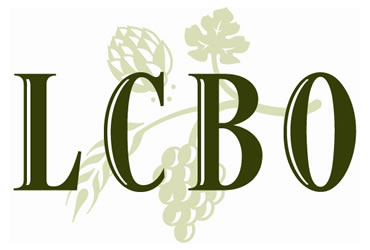 Welcome to the third installment in Joey’s Unofficial RubyFringe Guide to Toronto, a series of offbeat articles to acquaint attendees of the upcoming RubyFringe conference with Accordion City.
Welcome to the third installment in Joey’s Unofficial RubyFringe Guide to Toronto, a series of offbeat articles to acquaint attendees of the upcoming RubyFringe conference with Accordion City.
There’ve been two articles in the series so far:
In this article, I’ll cover the social lubricant that helps keep a good tech conference going: booze!
The Legal Drinking Age in Ontario: 19
If you look at Wikipedia’s Legal Drinking Age page, there are generally two places with a drinking age of 21 and some regions which ban the sale (and sometimes consumption) of alcohol:
- A handful of Muslim countries that allow alcohol: Indonesia (except Bali), Oman, Pakistan and United Arab Emirates, and
- the United States of America
Here in Ontario, as with most of Canada, the legal age drinking age is 19. Underage drinking is permitted at home under adult supervision. No, underage RubyFringers, you cannot come to my house to drink. A number of RubyFringe after-conference events will be taking place in or near licensed establishments, so be sure to bring some government ID with you — a driver’s licence or passport will do.
Where Do You Buy Liquor and Beer in Ontario?
If Ontario has a more civilized legal drinking age, we pay for it in terms of where we can buy it. The sale of beer and liquor is limited — with a few exceptions — to two types of stores:
The first type: the LCBO (short for the Liquor Control Board of Ontario), a set of stores run by the Ontario government that carries, spirits, wines and beers.
The second type: The Beer Store. Its official name is Brewers Retail, but since everyone calls it “The Beer Store”, that’s what they typically display on their storefronts. They sell beer and beer paraphernalia.
Okay, Enough Preamble. Where’s the Alcohol Store Closest to the Hotel?
Of the two types of store, the closest one to the Metropolitan Hotel Toronto is the LCBO at the Atrium on Bay, a shopping centre located a mere two blocks away. If you walk out of the hotel, take a left until you hit Dundas Street, then turn right and walk two blocks. The LCBO is on the lower level, about half a block into the shopping centre. Here’s a map:

This LCBO keeps these hours:
- Monday – Wednesday: 10:00 a.m. – 9:00 p.m.
- Thursday – Saturday: 10:00 a.m. – 10:00 p.m.
- Sunday: 12:00 p.m. – 5:00 p.m.
The Beer Hunter is Your Friend!
![]()
The Beer Hunter is a Google Maps mash-up that shows you the locations and hours of alcohol retail outlets in Ontario, aswell as which stores are open right now. It’s a creation of local web development shop Bad Math, and was recently featured in at New York’s Metropolitan Museum of Modern Art’s exhibit, Design and the Elastic Mind.
I’m Crashing at a Friend’s House. Can I Get Booze Delivered There?
Yes, you can! For a CDN$8.00 delivery charge, The Beer Guy lets you order alcohol online for home delivery in one hour.
Okay, Enough About Stores. What About Bars? Any Good Ones Near the Hotel?
There are a number of bars within walking distance of the hotel. Here are three decent ones that I used to frequent when I lived in the neighbourhood. They’re not cookie-cutter drinking establishments that you can find anywhere, but places with some character and local vibe.
The Village Idiot Pub (126 McCaul Street, about 6 minutes’ walk from the hotel). This one’s a hangout for locals as well as art students from the Ontario College of Art and Design or visitors to the Art Gallery of Ontario, both of which are just across the street. The bar has about two dozen higher-end beers on tap, from imports like Guinness, Leffe Brune and Kronenberg 1664 to local microbrews like Waterloo Dark (a favourite of mine) and Brick Honey Brown. The outer walls of the bar are garage doors which are rolled up in the summer to let the air in.
I made some decent coin (and a lot of beer!) busking here during the great blackout of 2003.
The Rex Hotel Jazz and Blues Bar (194 Queen Street West, about 10 minutes’ walk from the hotel). A jazz and blues institution since I was in high school, The Rex is a retro, just-divey-enough place that has a decent selection of beer and live blues and jazz. I’ve seen some pretty good acts here and have stumbled home tipsy many a night from this joint.
Smokeless Joe (125 John Street, about 12 minutes’ walk from the hotel). This is a place for the serious beer enthusiast. With a half-dozen taps and a couple hundred bottled beers, this tiny, friendly place was my preferred watering hole when I lived in the neighbourhood. If you want some food to go with your beer, they have delicious sandwiches and some pretty good oysters.
I’ve been there on some pretty good dates, such as this one as well as my first date with The Ginger Ninja.
When is Last Call in Ontario?
Bars and pubs have to stop serving alcohol at 2 a.m..
Is There Any Way to Get Served Booze After 2 a.m.?

I can neither confirm nor deny the veracity of the urban legend of “cold tea”, only that the urban legend exists. It does, after all, exist as an entry in Urban Dictionary.
There are speakeasies in town; the local term for them is “booze cans”. Their locations change over time, and the ones from my days as a single guy probably no longer exist. The best way to locate these places is to ask anyone who works in the entertainment/service industry such as a bartender or waiter; they’re where they go when their shifts end.
Be advised that you’ll get more out of the conference if you get some decent sleep and aren’t hung over…
















